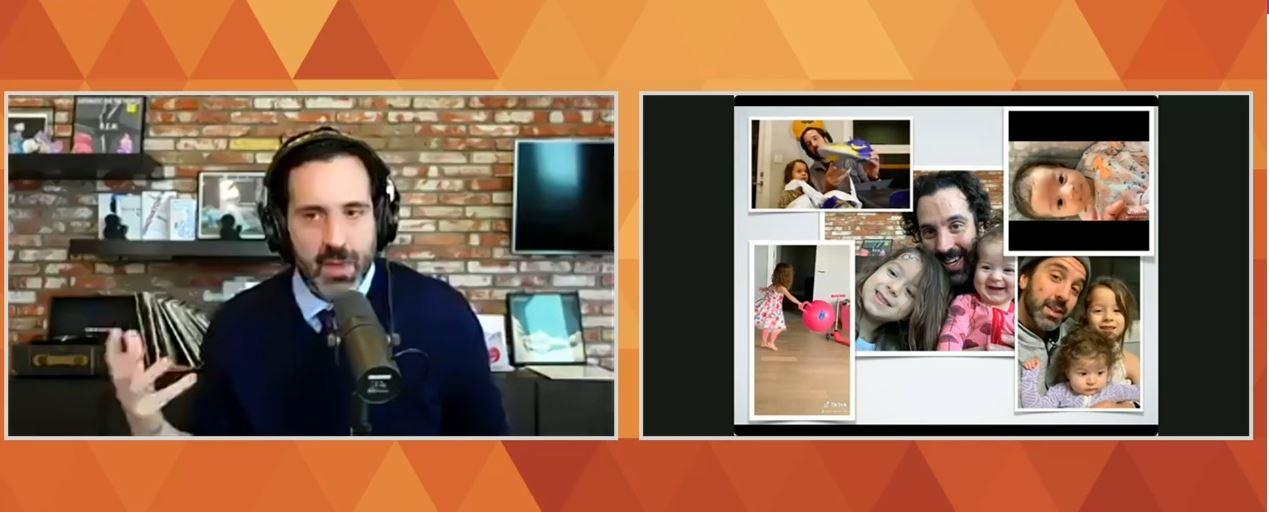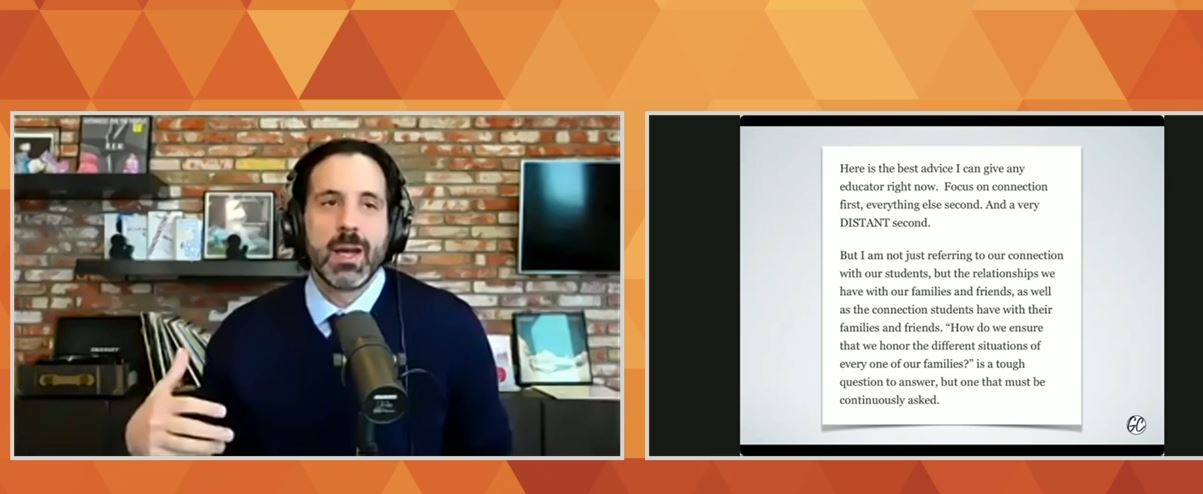By Liz Griffin |
Within minutes of taking the screen at the AASA national conference’s 2nd General Session, George Couros grabbed the audience’s attention with 10 seconds of a teacher’s homemade video revealing an authentic reaction to the COVID-19 pandemic. The “song” consisted of quiet guitar playing followed by the teacher’s prolonged scream “Arrrgggggghhh.”
Those attending his keynote address may have recalled their own primal screams during the past year. Couros, a consultant on innovative teaching, learning and leadership and a former principal in Alberta, Canada, said their work is important, and he believes the place to start reconnecting with students have not regularly attended remote schooling is to reach out directly to them. 
Call families to ask what’s going on rather than wait for a student to return. His reason: Relationships are the core to teaching and learning.
“If you have a good relationship, people will do anything for you,” said Couros, in his rapid-pace delivery. “Students who feel their contribution to class matters will turn up for remote learning. They know that the classroom will dissolve without them.”
He is the author of The Innovator’s Mindset and Innovate Inside the Box, both of which he referenced during his talk.
Schools should be joyful places for students and adults, he said. Students must feel their contribution matters and students’ likes and dislikes should be reflected in the curriculum.
Over the past year, he said he has seen some examples of success. In one case, a principal and students created the school’s video newsletter featuring them delivering reports on classroom activities rather than continue the traditional paper newsletter. Parents loved seeing their children featured.
“In teaching, curriculum is the innovation,” Couros says. Schools that build upon students’ strengths will see student success improve. To make this point he recalled that as a youth, he was more successful in classes that allowed him to talk a lot (which was no surprise to those in his conference audience), and the opposite was also true. He struggled when his personal strengths were not incorporated.
Today, Couros said, TikTok and other technology are tools to be incorporated into classroom assignments, something students enjoy. Some kids actually thrived during the past year because they were able to use tools that they couldn’t in school, he noted. There’s a lesson in that for all educators.
Couros told of observing some students compile a list of the 20 things they liked about remote learning. That will be important information to teachers and administrators when school reopens more widely.
Often, he said, educators don’t look to their own children for learning, Couros said, even when over the past year many adults have turned to their kids to help with Zoom or other technology. “Are kids getting to be amazing learners or are they just getting good at school?” asked Couros. His question delivered food for thought.
(Liz Griffin is a senior reporter for Conference Daily Online and managing editor of AASA’s School Administrator.)
